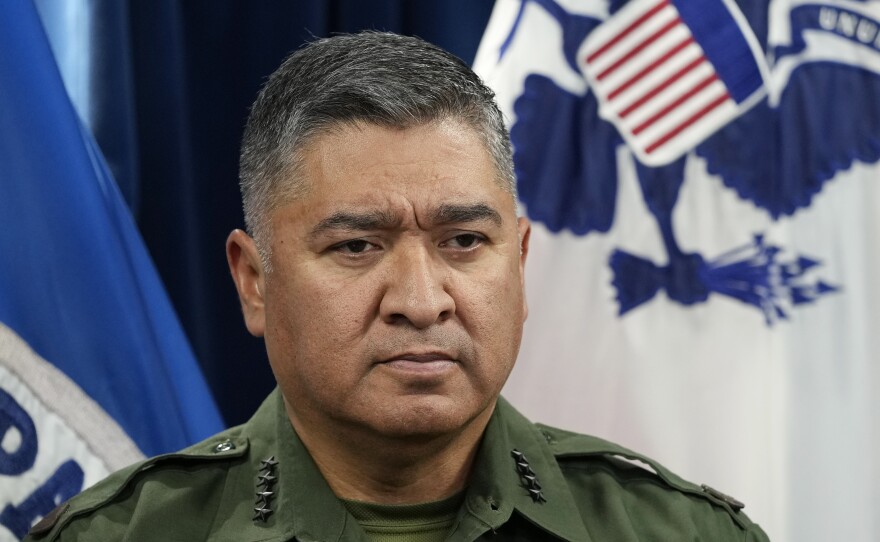The head of the U.S. Border Patrol announced that he's retiring, after seeing through a major policy shift that seeks to clamp down on illegal crossings at the U.S.-Mexico border following the end of Title 42 coronavirus pandemic restrictions.
Chief Raul Ortiz said Tuesday in a note to staff that was obtained by The Associated Press that he will leave June 30. It's unclear who will replace him.
“I leave at ease, knowing we have a tremendous uniformed and professional workforce, strong relationships with our union partners, and outstanding leaders who will continue to tirelessly advocate for you each day,” Ortiz said in the note.
Ortiz managed the Border Patrol and its roughly 20,000 agents through the COVID-19 pandemic and Title 42 emergency health restrictions that began in March 2020 and allowed agents to quickly return migrants over the southern border. He also oversaw the rollout of new policies on May 11 meant to discourage migrants from crossing illegally while opening up other legal pathways. The number of crossings has dropped, and the border has not seen the high numbers of crossings or chaos anticipated by even President Joe Biden with the end of the restrictions.
Ortiz took over as chief in August 2021, following the ouster of Rodney Scott, who enthusiastically embraced then-President Donald Trump’s policies, including his plan to build a border wall. Ortiz was a career official who slowly climbed the ranks over his 30-year career, and he was Scott’s top deputy at the time he became the leader, but he kept focused more on the work of the job and stayed away from more charged issues like the border wall.
On Tuesday, Department of Homeland Security Secretary Alejandro Mayorkas praised Ortiz as a great leader who was deeply committed to the well-being of his agents.
“Selecting him to lead the Border Patrol was among the most important decisions I have made,” he said. “Chief Ortiz agreed to postpone his retirement several times since, and the Border Patrol, the department and our country have been all the better for it.”
The Border Patrol, a part of U.S. Customs and Border Protection, has been been under a constant spotlight for years as the number of illegal crossings reached record highs before decreasing. Its job is to manage migrants who cross the border illegally, taking many into custody. But the type of people crossing the border has shifted over the years to include families. Agents often wade into the Rio Grande to rescue drowning migrants and search for children dumped alone by smugglers along the 1,951-mile (3,140-kilometer) border.
But the Border Patrol has also faced criticisms. During the Biden administration, some agents were found to have engaged in “unnecessary use of force” against non-threatening Haitian migrants. Two weeks ago, an 8-year-old Panamanian girl died in their custody on her family’s ninth day in custody; the most time allowed is 72 hours under agency policy.
Almost from the start of his tenure, Ortiz faced extraordinary frustration within his ranks as illegal crossings reached the highest levels ever recorded. Ortiz acknowledged at a meeting with agents in Laredo, Texas, in January 2022 that morale was at an “all-time low” after an agent complained about “doing nothing” but releasing migrants in the U.S. to pursue their cases in immigration court, according to leaked video published in the Washington Examiner. At another meeting in Yuma, Arizona, an agent turned his back on Mayorkas.
But changes to border policy saw the number of illegal crossings begin to decline, including a policy to return to Mexico 30,000 Haitians, Venezuelans, Nicaraguans and Cubans per month, as the Biden administration put into place restrictions that also allowed 30,000 of those groups to come to the U.S. legally as long as they fly, have background checks and bring a sponsor.
In his message to staff, Ortiz said that the leadership would continue to advocate for agents. “Please know I will always champion this agency, its mission, and the people who make the Border Patrol everything that it is,” he wrote.







